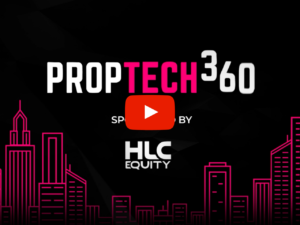The real estate industry is undergoing a significant shift as new technologies and changing consumer preferences are transforming the way we think about property ownership. In the past, owning a second home was a luxury reserved for the wealthy, but today, new models of fractional ownership are making it possible for a wider range of people to invest in vacation properties. And in the future, blockchain technology could revolutionize the way we own and transfer property altogether.
Fractional ownership, also known as shared ownership, allows multiple parties to purchase and share ownership of a property. This model is particularly popular for second homes, as it allows individuals to purchase a share of a vacation property without having to bear the full financial burden of ownership. For example, a group of friends might purchase a vacation home together, with each person owning a certain percentage of the property and having the right to use it for a certain amount of time each year.
This model is becoming increasingly popular, with companies like Pacaso, which PropTech360 hosted as part of our past web series. Below are a few takeaways from the fireside chat between Pacaso Co-Founder and CEO, Ausin Allison and HLC Equity CEO, Daniel Farber.
- Democratization of many asset classes and categories today is leading to tremendous opportunity. Pacasois focused on democratizing second home ownership, allowing people to own second homes at a fraction of the cost. Through HLC Direct, HLC Equity is focused on the democratization of real estate investing, providing investors access to institutional quality real estate backed by a multigenerational real estate group.
- Relentlessly focus on the problem and build your mission around solving the problem. As Albert Einstein once said, “If I had one hour to solve a problem I’d spend 55 minutes on the problem and 5 minutes thinking about solutions”.
- There have been significant shifts in terms of the “openness” in the real estate industry. Dating back to Dotloop’s (also founded by Allison) origins when the company had to convince real estate players to adapt, to today when real estate players are realizing they must adapt, and the question is how to adapt.
- Democratization of many asset classes and categories today is leading to tremendous opportunity. Pacasois focused on democratizing second home ownership, allowing people to own second homes at a fraction of the cost. Through HLC Direct, HLC Equity is focused on the democratization of real estate investing, providing investors access to institutional quality real estate backed by a multigenerational real estate group.
Another way new technology is changing the real estate industry is through the use of blockchain technology. Blockchain is a decentralized digital ledger that can be used to record transactions and transfer ownership of assets, including real estate. The technology is particularly well-suited for real estate because it allows for the creation of smart contracts that can automatically transfer ownership when certain conditions are met. This can make the process of buying and selling property much faster and more efficient, as there is no need for intermediaries like banks or lawyers to verify the transaction.
One company that is already using blockchain technology in the real estate industry is “Propy”. They have developed a platform that uses blockchain to facilitate the purchase and sale of property, as well as to create smart contracts that can automatically transfer ownership.
Another company “RealT” also uses blockchain technology to tokenize real estate assets, allowing them to be bought and sold like stocks on a stock exchange. This creates liquidity and allows investors to easily trade their shares in a property, similar to how they trade stocks on stock exchange.
While these new models of property ownership and blockchain technology are still in the early stages of development, they have the potential to transform the real estate industry in the coming years. As more people look for ways to invest in real estate without having to bear the full financial burden of ownership, fractional ownership will become increasingly popular. And as blockchain technology becomes more widely adopted, we could see a future where buying and selling property is faster, cheaper, and more efficient than ever before.
Like many industries, real estate is changing rapidly, with new technologies and models of interaction and ownership emerging. Fractional ownership and blockchain technology are two examples of how the real estate industry is evolving to meet the changing needs of consumers. As these technologies continue to develop, we can expect to see even more innovation and disruption in the real estate industry, making it easier and more accessible for everyone to invest in property.




